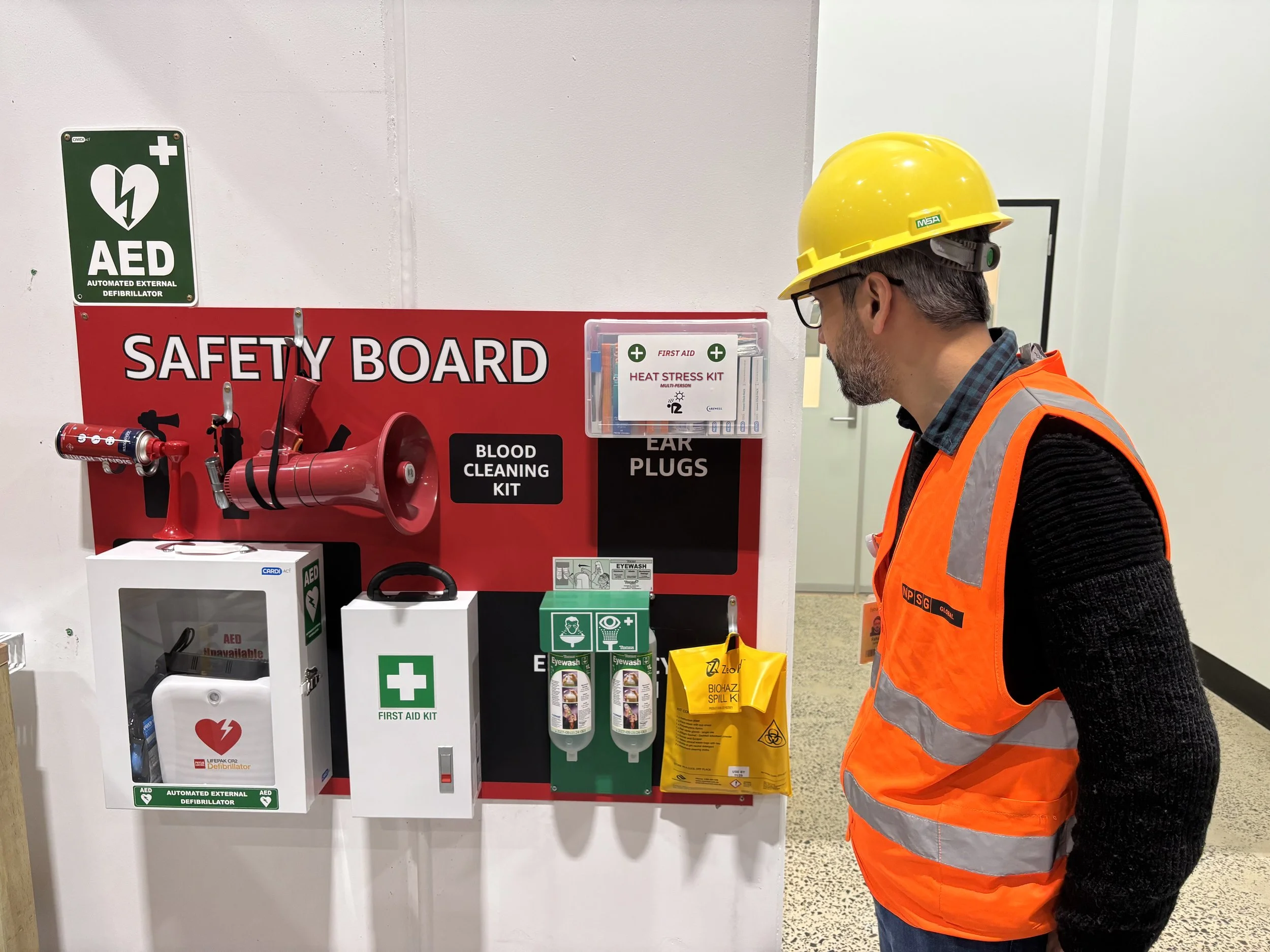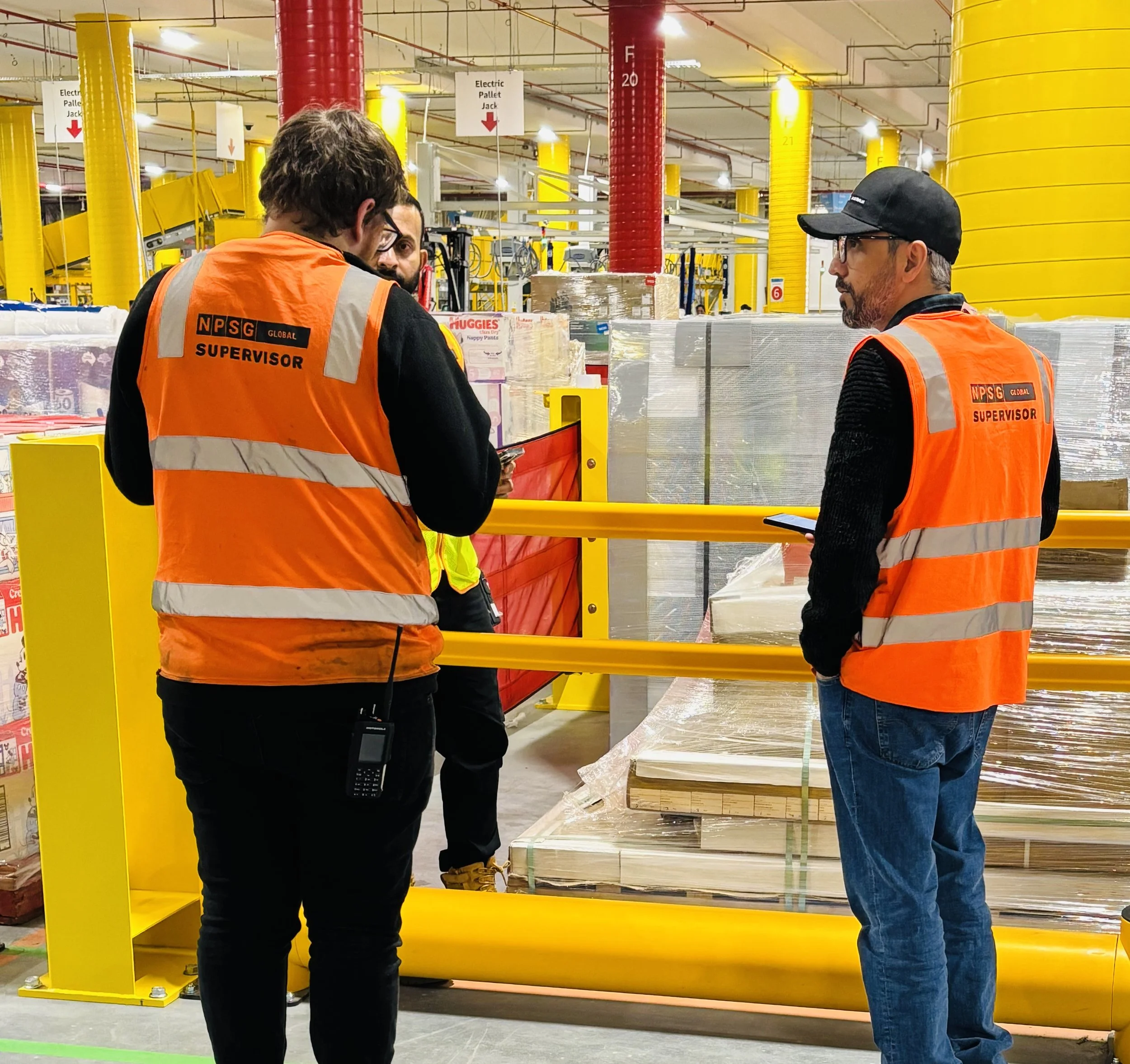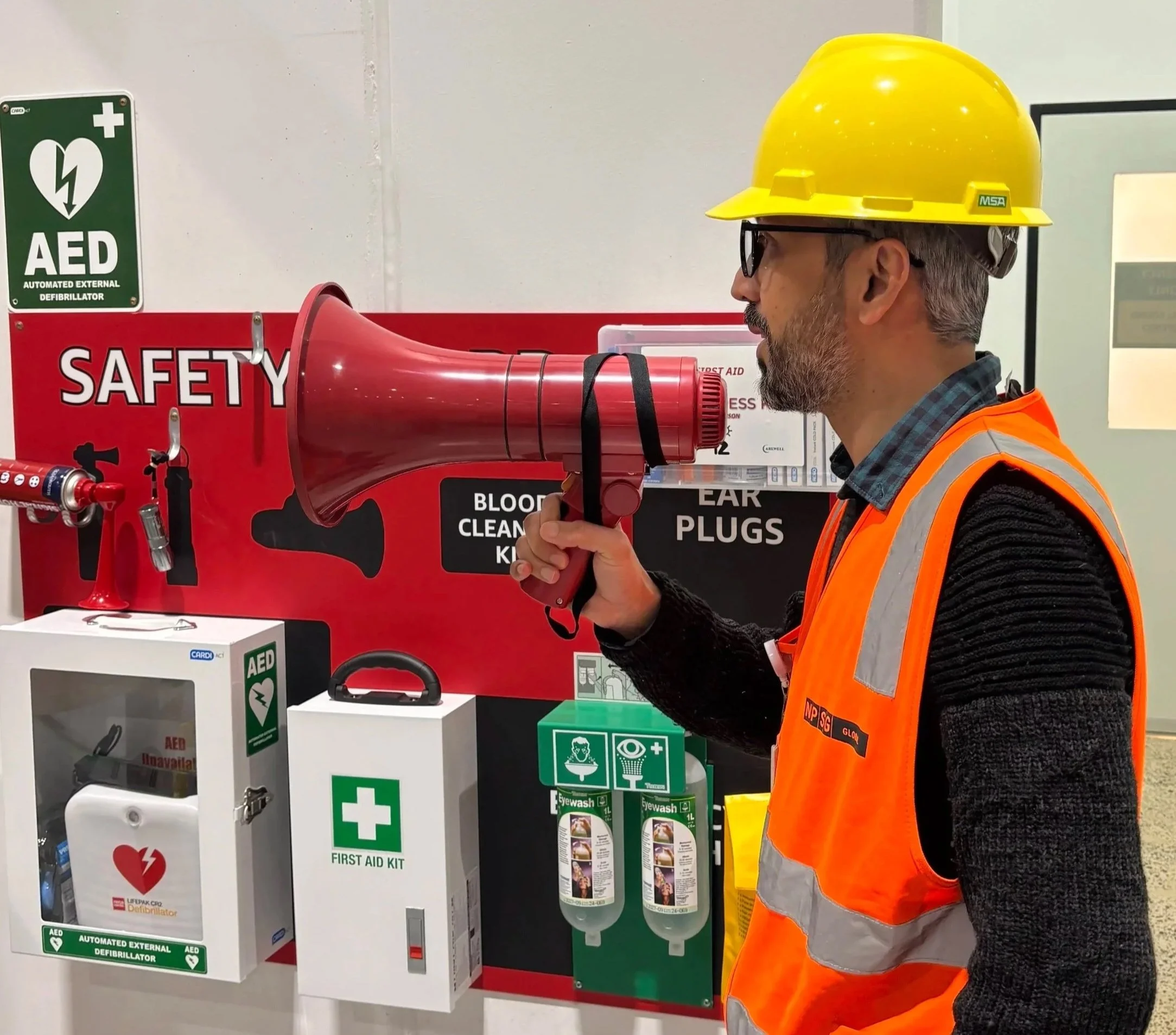Safety, Quality, and Culture: A Conversation with Fahad Ismail
We recently welcomed Fahad Ismail to NPSG Australia as our new Health, Safety & Quality Assurance Manager. He brings 15 years’ experience across major construction, infrastructure, and industrial projects in Qatar and Saudi Arabia, including a key leadership role on Riyadh’s groundbreaking Mukaab development. Fahad’s deep expertise in workplace safety, risk management, and compliance is matched by his passion for building proactive safety cultures. Now based in Melbourne, he has also volunteered his skills for global events such as the FIFA World Cup 2022. We sat down with Fahad for a Q&A.
Photo: Fahad inspecting the safety board
Photo: Fahad talking with team members
Photo: Inspecting full body harnesses
1. What attracted you to the role at NPSG Australia?
The Health, Safety, and Quality Assurance role at NPSG felt like a challenge I was ready to take on headfirst. I had the opportunity to work with the team as temporary staff for a month before joining, and I found the pace, energy, and collaboration incredibly engaging. That experience made the decision easy. I knew I wanted to be part of it long-term and saw it as an opportunity to contribute to something meaningful and impactful.
2. How would you describe your approach to safety and quality assurance on large-scale, fast-moving projects?
Safety and quality are shared responsibilities across the NPSG team. My approach is about building practical, digital HSQA systems that are clearly communicated, easy to follow, and regularly reviewed for improvement. The goal is to support progress and productivity while never compromising on standards.
3. What are your top priorities for improving health, safety, and quality across NPSG Australia’s national projects?
My focus is on creating streamlined, digital tools for reporting and tracking, building a proactive safety culture where people feel empowered to raise concerns, and ensuring our teams are trained, supported, and accountable. Aligning national and international standards with local execution is also a big part of our continuous improvement.
4. You’ve seen a lot of different worksites over your career. What do you think makes a safety culture stick?
It’s about ownership. When safety becomes everyone’s responsibility, not just the HS team’s, that’s when things shift. Recognising and celebrating safe behaviour, ensuring open communication, and clearly defining roles and expectations, that’s what builds a lasting safety culture.
5. Where do you think quality assurance adds the most value in a live, operational setting?
Quality assurance provides the structure that keeps operations efficient and consistent. In a live setting, it helps reduce rework, supports compliance, and ensures that the end result meets both client expectations and internal benchmarks. It’s the quiet force behind on-time, defect-free delivery.
6. What’s one moment in your career that really shaped your thinking around health, safety, or quality?
Working on one of the largest construction projects in the world was a defining moment. As part of the HSQA team, we weren’t just checking boxes, we were leading cultural change. The systems we developed shaped how not only the contractors and consultants worked, but also how the client approached safety and quality. Coming from a civil engineering background and working closely with immigrant workers in the Middle East, I’ve always felt a drive to make sure every worker who leaves their family behind comes home safely. That’s what motivates me every day.
7. When you're not working, what do you like to do to switch off?
I’m a bit of a workaholic. I genuinely enjoy what I do. But when I do find downtime, you’ll usually find me reading. I have a personal library at home with a large collection, and books have always been my escape and source of inspiration.
Photo: Fahad at the safety board. With proper PPE and clear communication, we uphold high standards and ensure a safe work environment.




